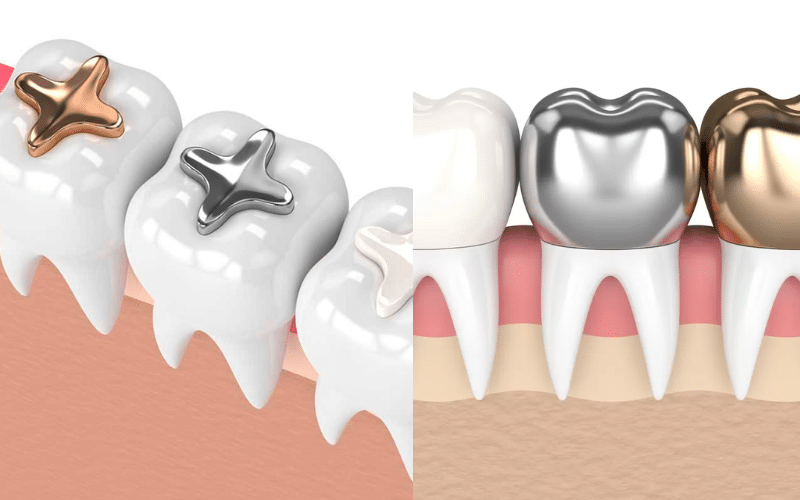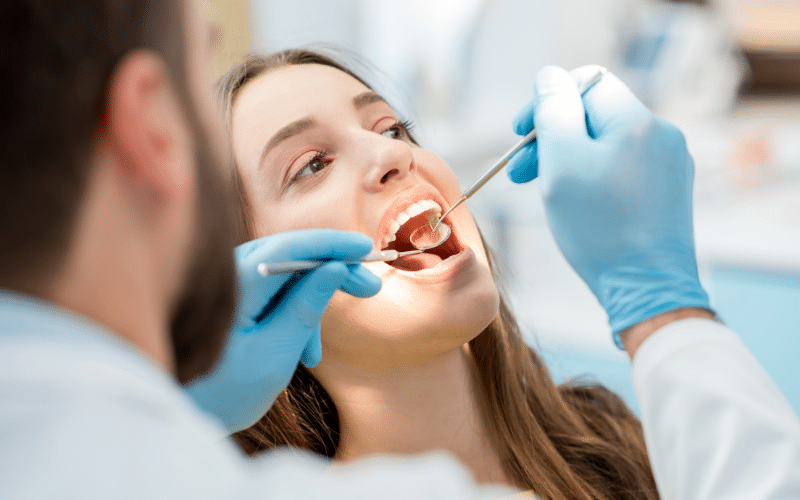
A tooth injury can happen at the most unexpected moments—during sports, accidents, or even everyday activities. Whether it’s a chipped tooth or a more severe break, it’s crucial to know when to seek professional dental help.
If you experience a dental injury, an emergency dentist can help you avoid further damage and restore your smile. In this blog, we’ll walk you through 5 key signs that indicate you need immediate dental care.
Is Your Tooth in Trouble? Signs Ask For An Emergency Dentist
1. Sudden, Intense Pain or Persistent Discomfort
Why it’s Important?
Tooth injuries often come with pain, and intense discomfort could be a red flag. If you feel sudden, sharp pain after an accident or impact, it’s essential to seek an emergency dentist in Cedar Park as soon as possible.
What You Should Do:
- Apply a Cold Compress: Before reaching out to the dentist, applying a cold compress can reduce swelling and numb the pain temporarily.
- Take Over-the-Counter Pain Relievers: If the pain is unbearable, over-the-counter pain relievers like ibuprofen or acetaminophen can offer some relief.
What A Dentist Will Do:
The dentist will assess the injury, check for any cracked or fractured teeth, and recommend treatments like fillings, crowns, or even a root canal if necessary.
2. Visible Damage: Chipped, Cracked, or Knocked-Out Teeth
Why it’s Important:
Any visible damage to your teeth—such as chips, cracks, or a tooth knocked out completely—should never be ignored. Even if it doesn’t hurt initially, visible damage is a clear indication that your tooth may need urgent care.
What You Should Do:
- Keep the Fragments: If a piece of your tooth has broken off, keep the fragments and place them in a clean container with milk or saline solution.
- Save the Knocked-Out Tooth: If your tooth is knocked out entirely, rinse it with water and place it back into the socket if possible. If not, store it in milk until you reach our dentist.
What A Dentist Will Do:
Depending on the severity of the damage, the dentist may perform bonding, fit you for a crown, or, in the case of a knocked-out tooth, attempt reimplantation or recommend a dental implant for long-term restoration.
3. Swelling, Bruising, or Bleeding Around the Tooth Area
Why it’s Important?
Swelling, bruising, or bleeding around a tooth injury is a serious concern. This could indicate damage to the gum tissue or underlying bone, and without timely intervention, it could lead to infection or further complications.
What You Should Do:
- Apply Gentle Pressure: For bleeding, gently apply gauze to the affected area to control the flow of blood.
- Elevate Your Head: Keeping your head elevated can help minimize swelling and reduce blood flow to the injured area.
What A Dentist Will Do:
An emergency dentist in Cedar Park, TX will assess the injury, clean the area thoroughly, and may need to stitch any lacerations. In some cases, X-rays will be taken to ensure no damage has occurred to the tooth root or jawbone.
4. Difficulty in Biting or Chewing Properly
Why It’s Important?
If you find it difficult to bite, chew, or feel that your teeth no longer align properly after an injury, it could indicate a displaced tooth or damage to the jaw. This should be addressed by an emergency dentist right away to prevent any misalignment or further tooth loss.
What You Should Do:
- Avoid Eating Hard Foods: Until you can see the dentist, avoid chewing on the injured side to prevent exacerbating the problem.
- Gentle Rinsing: Rinse your mouth with warm salt water to keep the area clean.
What A Dentist Will Do:
The dentist will examine the alignment of your teeth and jaw and may take X-rays to ensure there are no issues with the bone or ligaments surrounding the tooth. If needed, the dentist will reposition the tooth or provide a mouthguard to protect it.
5. Extreme Sensitivity To Hot or Cold
Why It’s Important?
If your tooth is injured and you experience sudden, extreme sensitivity to hot or cold, this could be a sign of nerve damage or an exposed tooth pulp. This type of sensitivity is common with deep fractures and may require urgent care.
What You Should Do:
- Avoid Hot or Cold Foods/Drinks: To minimize pain, refrain from consuming hot or cold foods and drinks.
- Use a Desensitizing Toothpaste: If the sensitivity persists, you can use toothpaste designed for sensitive teeth to help reduce discomfort.
What A Dentist Will Do:
The dentist may need to perform a root canal or apply a protective covering over the exposed nerve. If the nerve is severely damaged, more invasive treatments like a crown or extraction may be necessary.
How To Prepare For Your Visit To An Emergency Dentist?
In the event of a tooth injury, preparation can help make your visit to the emergency dentist smoother. Here’s what to do before you arrive:
- Gather Any Tooth Fragments: If possible, bring any pieces of your broken tooth with you in a clean container filled with milk or saline solution.
- Note the Time of Injury: The sooner you get dental care, the better the outcome. Knowing when the injury occurred can help the dentist plan the best course of action.
- Avoid Self-Diagnosis: Don’t try to fix the injury yourself. Let the dentist examine and treat the injury professionally.
A tooth injury should never be taken lightly. Whether it’s a broken tooth, intense pain, or visible damage, recognizing the signs of a serious dental emergency can save your tooth and protect your overall oral health.
If you notice any of these 5 signs outlined above, don’t hesitate—contact our dentist in Cedar Park immediately. The quicker you act, the better the chances of saving your tooth and minimizing complications.
Remember, professional dental care is essential when dealing with tooth injuries. With the right treatment, you can restore your smile and maintain long-term dental health!




